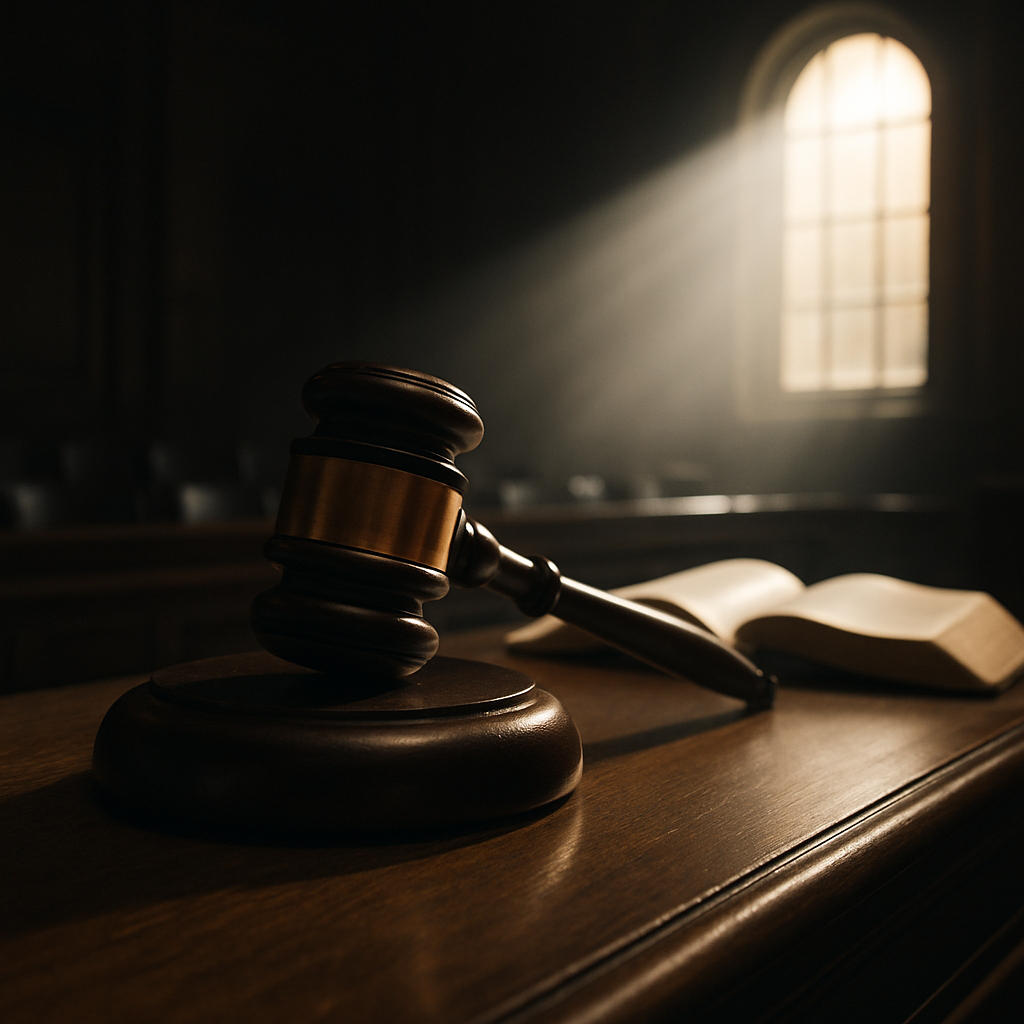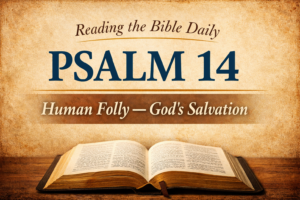⏱️ Estimated Reading Time: 5 min read
When the Gavel Falls: Christ Our Advocate
It has been said that one of the greatest problems that plague contemporary people is unresolved guilt. Sin squeezes the life out of unwitting victims. Sins of omission, sins of commission, sins of regret, neglect, fear, ungodly anger, broken relationships, and insubordination pose a massive threat to the well-being of well-meaning people.
Everyone is included in this sinful parade. We have all committed sin. We are sinners by nature and by choice – and as a result, guilt rears its ugly head. Sometimes the guilt waits to surface until we’re all alone. For some of us, guilt is a constant note on the musical scoresheet of our lives. For others, the only time we feel guilt is when we hear a preacher reminds us about our sin.
Here is the problem: Apart from the grace of God, we all stand before the bar of God’s justice – and we stand condemned. Apart from the grace of God, we are guilty.
The sound of the gavel is unmistakable in a courtroom setting. When the judge slams the gavel, it reminds us that a verdict has been reached. It announces the guilt or innocence of the defendant.
In 1 John 2, the apostle John ushers us into the celestial courtroom and answers the question, “What is the greatest need of sinners when the gavel falls?” As we enter the heavenly tribunal, I invite you to encounter the divine standard and the divine representative.
THE DIVINE STANDARD
If you ever have the opportunity to attend a trial in a courtroom, one of the first memories you will have is when the Judge enters the courtroom. The bailiff announces, “All rise!” John the apostle introduces the presiding Judge of the universe in 1 John 1:5. He writes, “This is the message we have heard from him and proclaim to you that God is light, and in him is no darkness at all.”
The Presiding Judge of the Divine Standard
- He is the majestic God of the universe. Psalm 8:1; Exodus 15:11
- He is the transcendent God of the universe. Isaiah 57:15
- He is the sovereign God of the universe. Psalm 115:3; Daniel 4:34–35
- He is the holy God of the universe. 1 John 1:5; Psalm 9:7–8
The heavenly Judge has the authority to issue the particulars of the divine standard. This is the divine standard we turn our attention to.
The Particulars of the Divine Standard
John gives his readers an inside look at the motivation for his writing: “My little children, I am writing these things to you so that you may not sin …” (v. 1). John calls his readers to live holy lives, what he refers to as “walking in the light.” Notice the particulars, then, of this divine standard:
- The call to holiness began in eternity past. Ephesians 1:4
- We are called out of darkness to proclaim the excellencies of God. 1 Peter 2:9
- We are called to conduct ourselves in a holy manner. 1 Peter 1:14–16
The heart of the apostle John is to communicate the divine standard to Christians: “so that you may not sin.” Indeed, this is God’s standard – this is the divine standard. But there is a problem we must acknowledge: we do sin (1 John 1:5–10).
To sin means to miss the mark, specifically in our relationship with God. The Westminster Shorter Catechism says, “Sin is any want of conformity unto, or transgression of, the law God.”1 Martyn Lloyd-Jones writes, “Sin is disobedience to God’s revealed law.”2 John Piper summarizes, “What does not come from satisfaction in God, and through the guidance of God, and for the glory of God, is God-less – it is sin.”3
Since we fail to the divine standard in every respect, John introduces the Divine Representative.
THE DIVINE REPRESENTATIVE
The apostle John presents three marks of the Divine Representative: “My little children, I am writing these things to you so that you may not sin. But if anyone does sin, we have an advocate with the Father, Jesus Christ the righteous” (1 John 2:1).
- Jesus is righteous. Hebrews 4:15
- Jesus stands face-to-face with the Father. John 1:1 (Greek: prós)
- Jesus is our Advocate. He pleads our case before the Father.
Martyn Lloyd-Jones explains, “Unlike a defense attorney who may argue that his client is innocent of all charges, this defense attorney recognizes your guilt before God. The Advocate turns to the Father and says, ‘… I am here just to remind You that the law has been fulfilled, that the death has died, the punishment has been enacted; they are free because I died for them.”4
And so we cannot meet the divine standard. The Divine Representative stands in our defense. All these things clear the path for the divine accomplishment, which John unfolds in 1 John 2:2 – “He is the propitiation for our sins, and not for ours only but also for the sins of the whole world.”
When the gavel falls, a verdict will be rendered. Will you bear the weight of your sin and thus endure 10,000 degrees of white-hot wrath? Or will you trust Jesus to stand in your defense? When the gavel falls, will you stand condemned or will Christ’s sacrificial death pardon you, grant peace (Romans 5:1), and welcome you into his presence where you will enjoy the pleasures of God forever (Psalm 16:11)?
Check out our YouTube for more content like this, along with Servants of Grace for more on The Gospel and the Christian Life.
Footnotes
- Westminster Shorter Catechism, Question 14.
- Martyn Lloyd-Jones, Walking With God (Wheaton: Crossway Books, 1993), 14.
- John Piper, Future Grace (Sisters: Multnomah Books, 1995), 324.
- Martyn Lloyd-Jones, Walking With God, 15.
Dr. David Steele has been in pastoral ministry since 1991. He holds BS and MA degrees from Multnomah University and Multnomah Biblical Seminary and a D. Min from Bakke Graduate University. Following graduation from Multnomah University, he served eight years as Pastor to Students at Lacey Chapel. In 2000, he became the Pastor of Theology at First Baptist Church in La Grande, Oregon where he served for over eleven years. In 2012, he became the Senior Pastor at Christ Fellowship in Everson, Washington.
He is the author of Bold Reformer: Celebrating the Gospel-Centered Convictions of Martin Luther, A Godward Gaze: The Holy Pursuit of John Calvin, and The White Flag: When Compromise Cripples the Church.
At Christ Fellowship he leads the staff, serves as the Pastor for preaching and vision casting, and oversees Veritas (adult theological education) and Iron Men (men’s leadership development).
His personal mission is to positively influence people, impact the world one person at a time and to glorify God by enjoying him forever. His passion in ministry is preaching, teaching, and leadership development. Specifically, his aim is to educate the mind, engage the affections, equip the whole person, and encourage God-centered living that treasures Christ above all things.
He and his wife, Gerrene were married in 1991 and they have two children.




